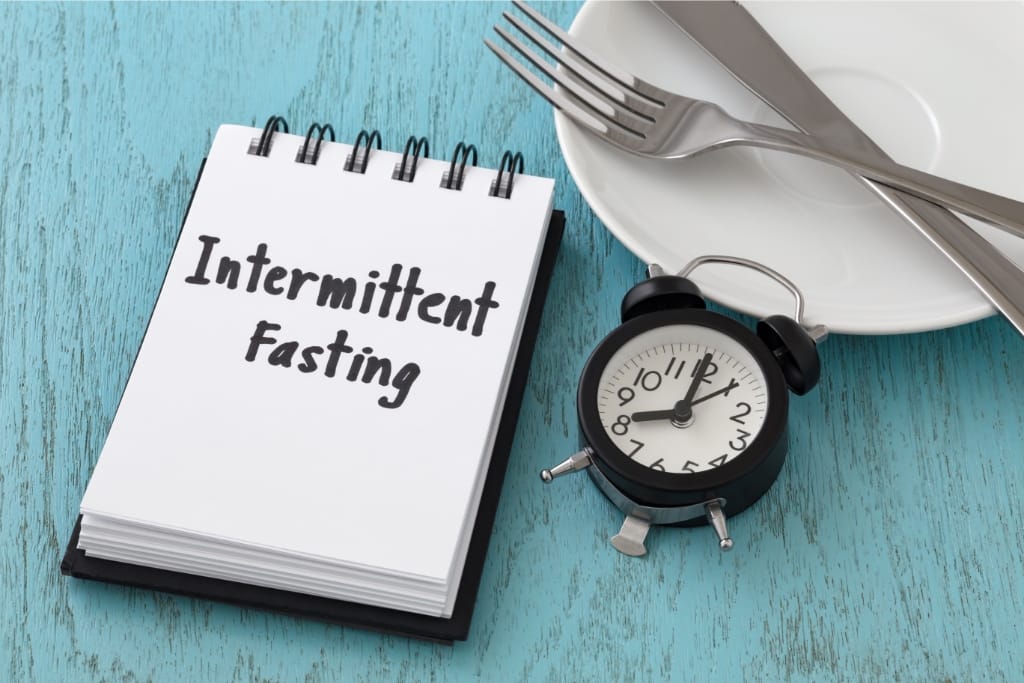Intermittent fasting has become a popular lifestyle choice for those seeking better health, weight management, and improved energy levels.
However, sticking to fasting periods without succumbing to hunger can be one of the biggest challenges for beginners and seasoned practitioners alike.
The good news is that there are practical strategies to make intermittent fasting feel effortless and sustainable, allowing you to enjoy its benefits without the constant distractions of hunger pangs or low energy.
By implementing simple but effective techniques, you can maintain balance, feel satisfied, and stay on track with your fasting routine.
Here are 12 proven ways to make intermittent fasting not just manageable, but enjoyable.
1)) Stay Hydrated
Proper hydration is crucial during intermittent fasting, as it helps sustain energy levels, maintain focus, and curb hunger throughout the day.
Drinking enough water supports your body's natural processes, aiding in detoxification and keeping your metabolism active.
Including beverages like herbal teas, sparkling water, or black coffee can also provide variety and help you feel refreshed without breaking your fast.
Staying hydrated can reduce the likelihood of mistaking thirst for hunger, which is a common challenge during fasting periods.
Keep a reusable water bottle nearby as a reminder to consistently hydrate and keep your fasting routine smoother and more comfortable.
2)) Eat Nutrient-Dense Meals
Focusing on nutrient-dense meals during your eating windows is essential for sustaining your energy, curbing cravings, and supporting overall health.
Prioritize foods rich in vitamins, minerals, and macronutrients, such as lean proteins, healthy fats, complex carbohydrates, and vibrant vegetables.
These foods provide the fuel your body needs to function optimally during fasting periods while also keeping you fuller for longer.
Adding diverse ingredients like leafy greens, avocados, quinoa, nuts, seeds, and fatty fish to create balanced meals that align with your nutritional goals.
By fueling your body effectively during eating windows, you can make intermittent fasting a more manageable and rewarding experience.
3)) Start With Shorter Fasts
If you're new to intermittent fasting, it’s important to ease into the practice by beginning with shorter fasting periods to allow your body to adjust.
Starting with a 12-hour fasting window, for example, can help you get accustomed to the rhythm without feeling overwhelmed or overly hungry.
Gradually increasing the fasting duration over time gives your metabolism a chance to adapt and reduces the likelihood of discomfort or fatigue.
Shorter fasts also allow you to explore which fasting schedule works best for your lifestyle, ensuring you build consistency and confidence in your routine.
By beginning with smaller, achievable goals, you set the foundation for long-term success and make intermittent fasting a more sustainable and enjoyable part of your day-to-day life.
4)) Avoid Refined Carbs
Eliminating refined carbs from your diet during eating windows can significantly improve your intermittent fasting experience by stabilizing blood sugar levels and reducing sudden hunger spikes.
Consuming foods like white bread, pastries, sugary snacks, and processed cereals often leads to quick energy crashes, leaving you craving more food shortly after eating.
Instead, focus on whole food alternatives such as whole grains, sweet potatoes, legumes, and fresh fruits to provide sustained energy and lasting fullness.
These nutrient-rich options help support a balanced fasting cycle and promote better overall health.
By steering clear of refined carbs, you can enhance your body's ability to maintain steady energy during fasting periods and feel more in control of your hunger.
5)) Limit Late-Night Eating
Avoiding late-night eating is a crucial step for maintaining a successful intermittent fasting routine and supporting your overall health.
Eating too close to bedtime can interfere with your body's natural rhythms, including your ability to metabolize food efficiently and get restorative sleep.
Consuming heavy or high-calorie meals late at night may also lead to digestive discomfort, making it harder to relax and prepare for a quality night’s rest.
By ensuring your last meal of the day is consumed a few hours before bedtime, you allow your body enough time to process the food and transition into the fasting period naturally.
Establishing this habit promotes better digestion, improves sleep quality, and helps you wake up feeling refreshed and ready to continue your intermittent fasting schedule seamlessly.
6)) Drink Black Coffee Or Tea
Adding black coffee or tea to your intermittent fasting routine can offer both practical and enjoyable benefits.
These calorie-free beverages help keep you energized and focused during fasting periods, thanks to their natural caffeine content.
Black coffee stimulates your metabolism and can enhance fat-burning processes, while tea—whether green, herbal, or oolong—provides hydration along with soothing antioxidants.
Both drinks can also help suppress hunger by curbing cravings and increasing your sense of fullness.
It’s important to avoid adding any sugar, cream, or milk to keep your fast intact, but you can experiment with a variety of blends and roasts to suit your taste preferences.
Incorporating black coffee or tea into your fasting toolbox makes it easier to stay alert, satisfied, and on track throughout your fasting window.
7)) Manage Stress Effectively
Effectively managing stress is a vital component of maintaining a consistent and successful intermittent fasting routine.
Chronic stress can trigger hormonal imbalances, particularly an increase in cortisol levels, which may lead to amplified hunger cues and difficulty adhering to fasting schedules.
To counteract this, incorporate stress-reducing practices such as mindfulness meditation, deep breathing exercises, or engaging in relaxing activities like yoga or walking in nature.
Building a support system by sharing your goals with friends or family can also reduce feelings of pressure and provide accountability.
Ensuring you get adequate sleep and practicing self-care further enhances your ability to handle stress, promoting a balanced mind and body.
By prioritizing stress management, you create a more positive fasting experience and strengthen your overall well-being.
8)) Get Enough Sleep
Prioritizing adequate sleep is crucial for maximizing the benefits of intermittent fasting and maintaining overall health.
Poor sleep can disrupt hormonal balance, particularly the levels of ghrelin and leptin, which regulate hunger and satiety.
This imbalance may lead to increased food cravings and a greater likelihood of overeating during eating windows.
Aiming for 7-9 hours of quality sleep each night allows your body to repair itself, regulate metabolism, and prepare for the next day’s fasting period.
To promote better sleep, establish a consistent bedtime routine, limit exposure to screens before bed, and create a comfortable, dark, and quiet sleep environment.
Adequate rest not only enhances your fasting experience but also contributes to better focus, mood, and overall well-being, ensuring you're set up for long-term success.
9)) Stay Busy To Distract Hunger
Keeping yourself engaged with activities is an effective way to manage hunger pangs during fasting periods.
When your mind is occupied, it becomes easier to shift focus away from thoughts of food, making the fasting hours more manageable.
Productive tasks such as cleaning, organizing, or tackling work assignments not only divert your attention but also give you a sense of accomplishment.
Physical activities such as walking, light exercise, or hobbies like gardening can further help to stave off hunger while also enhancing your mood and energy levels.
Engaging in creative pursuits or social interactions can provide positive distractions, leaving little room to dwell on cravings.
By staying busy and active, you not only make fasting feel effortless but also improve your overall productivity and mental well-being.
10)) Break Your Fast Gradually
Breaking your fast gradually is essential for supporting proper digestion and preventing discomfort, especially after an extended fasting period.
Start with light, nutrient-dense foods such as fresh fruits, vegetables, or a small handful of nuts to ease your digestive system back into action.
Including hydration through water or herbal tea before eating can also help prepare your body for the meal.
Aim to avoid heavy, greasy, or highly processed foods immediately after fasting, as these can be harder to digest and may lead to bloating or fatigue.
Introducing a balanced meal with a mix of protein, healthy fats, and complex carbohydrates is an excellent way to refuel your body and sustain energy levels.
Taking a mindful and gradual approach to breaking your fast ensures both comfort and the continuation of the positive effects of your fasting routine on your health.
11)) Incorporate Exercise Wisely
Regular exercise can be a valuable complement to intermittent fasting, but it’s essential to incorporate it wisely to avoid overexertion or energy depletion.
During fasting periods, low-intensity workouts such as walking, yoga, or stretching can help you stay active without placing too much strain on your body.
If you prefer more intense activities like weightlifting or high-intensity interval training (HIIT), consider scheduling these workouts during your eating window when your body has access to fuel for optimal performance and recovery.
Listening to your body is crucial; adjust your workouts based on how you feel and your energy levels while fasting.
Staying hydrated and replenishing electrolytes are also vital to support physical activity during fasting.
By integrating exercise thoughtfully into your routine, you can boost metabolism, increase muscle tone, and enhance the overall effectiveness of your intermittent fasting plan.
Pro-Tip: Investing in a home gym system can be a game-changer for staying consistent with your fitness routine, especially if you have a packed schedule.
Having equipment like dumbbells, resistance bands, or a stationary bike readily available means you can squeeze in a quick workout without the time and hassle of commuting to a gym.
A home gym eliminates barriers such as bad weather or crowded fitness centers, making it easier to prioritize your health.
Setting up a dedicated space for exercise also helps create a routine and fosters motivation, ensuring fitness becomes a seamless part of your daily life.
12)) Plan Meals
Planning your meals is a powerful strategy to enhance the success of your intermittent fasting routine.
By preparing nutrient-dense and balanced meals ahead of time, you can ensure you’re nourishing your body with the right combination of proteins, healthy fats, and complex carbohydrates, which help sustain energy and promote overall well-being.
Meal prepping not only saves time but also reduces the likelihood of making impulsive food choices or succumbing to unhealthy snacks during your eating window.
Create a weekly menu and shop for ingredients accordingly, focusing on wholesome options like lean proteins, whole grains, fresh produce, and healthy fats.
Storing pre-portioned meals in containers makes it easy to stick to your nutritional goals and avoid overeating.
With thoughtful meal preparation, you eliminate the stress of last-minute decisions and create a routine that supports both your fasting and long-term health objectives.
Conclusion
Intermittent fasting can be a powerful tool for achieving better health and cultivating a more mindful approach to eating when practiced with intention and care.
By incorporating thoughtful strategies such as ensuring proper hydration, prioritizing quality sleep, and engaging in productive activities, you can enhance your fasting experience and make it both sustainable and rewarding.
Tailoring your routine to include gradual meal breaks, balanced nutrition, and wisely planned exercise helps you maintain energy and support your overall well-being.
Meal preparation and mindful eating ensure you stay on track with your goals while avoiding unhealthy temptations.
By integrating these practices into your lifestyle, you create a solid foundation for long-term success, improved focus, and a greater sense of harmony between your mind and body.
Whether your purpose is weight management, improved metabolism, or enhanced mental clarity, a well-executed fasting routine can help you unlock new levels of vitality and health.
Download Our Free E-book!








